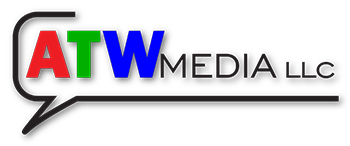Texas hemp farmers fear full THC ban would nip industry in the bud
Posted/updated on: April 20, 2025 at 7:33 pmAUSTIN – The Texas Tribune reports that Andrew Hill, who studied and farmed hemp in California before it was legal in Texas, was a keynote speaker at the state’s first-ever agricultural hemp expo in Dallas in 2019. Amid considerable hype and excitement that followed the recent federal legalization of hemp, Hill tried to warn farmers that the industry wasn’t as profitable as state officials and seed vendors were pitching.
“There were guys running around telling farmers they could make $2,500 to $3,000 an acre on hemp. Being an actual farmer, not trying to sell seeds or clones, I couldn’t help but burst out laughing,” Hill said. “Everyone looked at me and asked what was so funny, and they gave me the mic and I said, ‘Ladies and gentlemen, I’ll tell you right now — I haven’t seen over $1,000 an acre since 2015.’”
Still, Texas lawmakers embraced the opportunity hemp presented in 2019, legalizing hemp products of the cannabis plant with less than 0.3% of THC, the psychoactive component in marijuana. Hill’s Texas Star Hemp Farms was among those to make the investment necessary to profit from hemp, including owning almost all the means of production and sales and spending millions on seeds, licenses and facilities.
Six years after that initial rush, industrial hemp farming in Texas stands on the brink. Senate Bill 3, which would ban any consumable hemp products that contain even trace amounts of THC, could destroy what farmers like Hill have built.
“Now, considering things like hemp hearts, hemp seed oils, salad dressings, and those health products that don’t have any cannabinoids in them to get you high, [they] will still be illegal under this law,” Hill said.
Hill is one of about 450 licensed hemp producers in the Texas Industrial Hemp Program at risk of losing a chunk of their livelihoods as Texas lawmakers have prioritized banning tetrahydrocannabinol, or THC products. Farmers say there is no way they can produce hemp without traces of THC, even for non-consumable products like clothing and paper, meaning SB 3 could deliver a death blow to the industry.
The GOP-controlled Legislature authorized the sale of consumable hemp a year after it was legalized nationwide to boost Texas agriculture by allowing the commercialization of hemp containing trace amounts of non-intoxicating delta-9 THC.
What ensued was a proliferation of hemp products, such as gummies, beverages, vapes and flower buds, sold at dispensaries and convenience stores across the state. Sen. Charles Perry, a Lubbock Republican who carried the 2019 hemp legalization bill, says such uses exploit a legal loophole and put children in danger.
His SB 3 attempts to correct this by penalizing violators who knowingly possess THC products with a misdemeanor that can carry up to a year in jail and 2 to 10 years in prison for manufacturing or selling them. The measure, which was approved by the Senate, also bars marketing and sales of consumable hemp to minors and requires all legal products to be sold in tamper-evident and child-resistant packaging.
Like SB 3, House Bill 28 would ban synthetic THC and products like gummies and vapes. But the House’s proposal focuses more on tightening regulatory loopholes, allowing hemp-infused beverages and assigning the alcohol industry to regulate products, as well as limiting the consumption of such products to those 21 years or older and implementing advertising regulations.
Restart CBD displays beverages in a fridge on Thursday, May 9, 2024 in Austin. Beverages are a really interesting opportunity for this industry as they are accessible like edibles, but also allow for people to consume drinks that aren’t alcohol but still have some sort of benefit.
Beverages containing THC in an Austin store on Thursday, May 9, 2024. Credit: Maria Crane/The Texas Tribune
“This regulatory structure will also maintain the federal restriction on THC of no more than 0.3%, as well as limiting the amount a person can buy in a single day to 10 milligrams,” said state Rep. Ken King, R-Canadian, sponsor of the bill.
If the House passes its proposal, the two chambers must reconcile their differences for the legislation to become law. The House hasn’t taken up either of the hemp bills for a vote.




